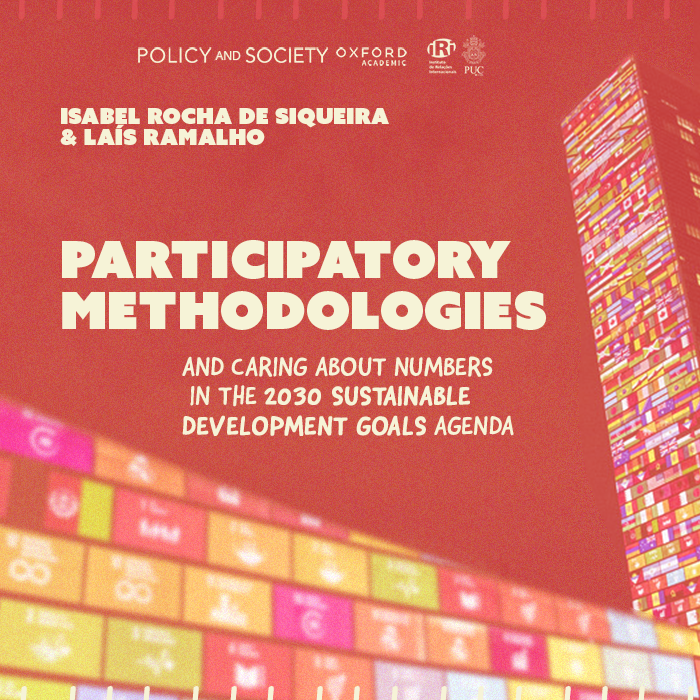The article “Participatory methodologies and caring about numbers in the 2030 Sustainable Development Goals Agenda”, produced by professor Isabel Rocha de Siqueira and doctoral student Laís Ramalho, has just been published in the academic journal Policy and Society. Policy & Society is one of the leading publications currently in the study of theory and practice in the area of Political Science, IR and Public Policy, with a very high impact factor.
Abstract: Governing by indicators has emerged as the predominant mode of global public policy. Consequently, global governance has become a field in which different indicators compete for policymakers’ and public attention. This begs a question—what makes some indicators successful when others become irrelevant? This paper explores this problem through the inquiry into the measurement of multidimensional poverty in Sustainable Development Goal 1 (“End poverty in all its forms everywhere”). In the field historically dominated by the World Bank’s dollar-per-day metric (currently 1.9$), multidimensional poverty measurement gained prominence, becoming one of the key measures of global poverty. By tracking the pathways to success of multidimensional poverty measurement—through qualitative interviews with actors in International Organisations this paper argues that the key quality of successful indicators is their ability to become parts of the broader epistemic infrastructure, linking political institutions, actors (including experts and policymakers), and data and statistics. The paper brings the focus on a specific set of actors—statistical entrepreneurs—who advocate for innovations in measurement and work toward creating such infrastructures, thus indirectly promoting new policy ideas reflected in the metrics.
